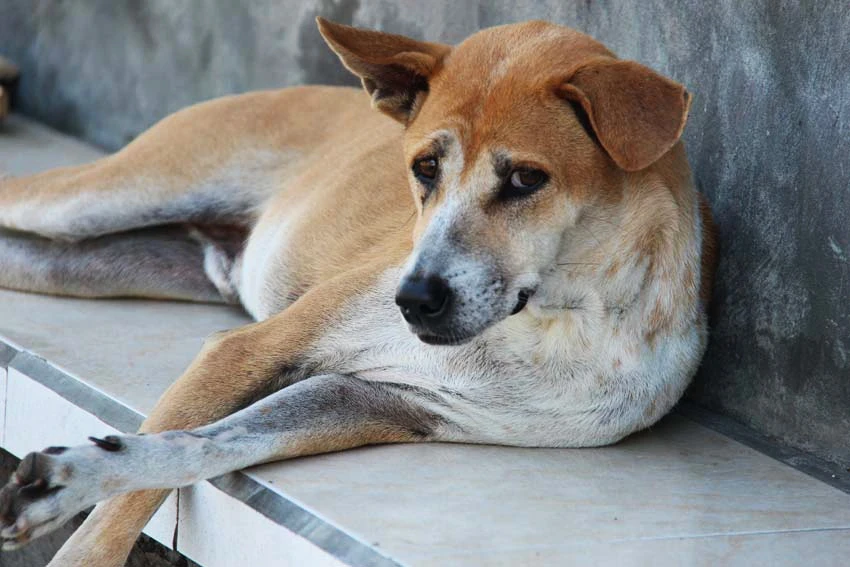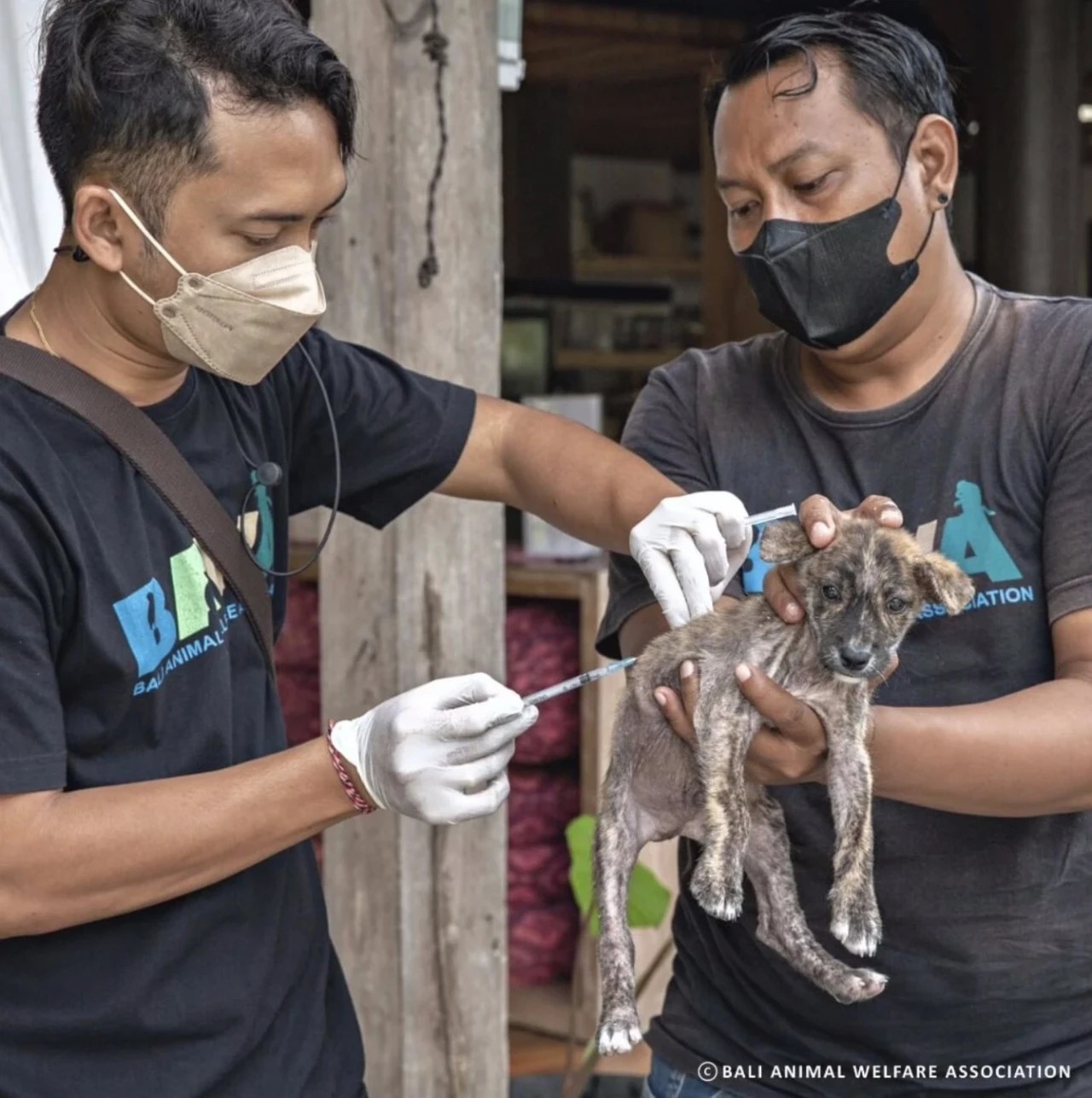46-year-old Angela Deliva from Canada nearly became a victim of her own kindness. During her trip to Bali, she noticed a stray dog, felt sorry for it, and decided to take it in. However, when she tried to place the animal in a carrier, it bit her on the hand. “Afterward, she came to us at Saka Vet Clinic to receive medical help,” explained Vidnyana, a doctor at the clinic where the woman and the dog went after the bite.

The clinic staff decided to observe the animal and placed it in quarantine for two weeks. “On the fourth day, the dog died. We conducted a lab analysis of its brain, and it tested positive for rabies,” Vidnyana said. The victim received medical care and was given a VAR (rabies) vaccine injection at Bali Medika Hospital. Her treatment continued at the Ubud Public Health Center, where she was administered the vaccine two more times. According to Vidnyana, the stray dog that bit the victim was likely intentionally abandoned by its owner.
Vidnyana emphasized that overall, vaccination of domestic dogs in the village of Sayan, where the incident occurred, has covered over 80%. “The vaccination of domestic dogs has been completed. However, many unvaccinated dogs remain on the streets,” she explained. Due to this unfortunate incident, the area where the bite took place will be monitored, and stray dogs will be euthanized. The process will be coordinated with the banjar (local community) and authorities to ensure everything runs smoothly. Residents are urged to keep their dogs from roaming freely to prevent them from contracting this deadly virus.
Not only the Ubud authorities but also the entire provincial government of Bali are concerned about the issue and are now vaccinating dogs and cats, including stray or free-roaming ones, to prevent the transmission of rabies.
“We must rid Bali of rabies,” said Dewa Made Indra, Secretary of the Bali Province, during a dog and cat vaccination event at Mertasari Beach in Sanur.
On the government’s initiative, free rabies vaccination programs are being conducted, including vaccinations initiated by the Bali Veterinary Association.
The authorities have set a goal to rid the island of the virus by 2030, but there is still much work to be done. Around 30 percent of dogs have yet to be vaccinated against rabies.
According to the Bali Provincial Department of Agriculture and Food Security, dog vaccination coverage, including for strays, has reached 426,000 dogs or 70.53% of the 605,000 dogs living on the island.
“This means we still need to vaccinate the remaining 30 percent, but it’s clear that dogs will continue to reproduce during this time, increasing their numbers,” he added.
Capturing wild animals, especially dogs, as they are the primary source of rabies transmission, is also being carried out for vaccination, but this is a challenging task that requires cooperation between districts and communities.
Meanwhile, I Dewa Made Anom, chairman of the Indonesian Veterinary Association in Bali, said that his organization is assisting with dog and cat vaccinations, with 3,500 doses still available.
Neighbors will also help in the fight against the virus, as Australia is set to send 200,000 vaccine doses. Last year, they provided the same amount of medicine.
Of course, if you’re bitten by a dog, you should seek immediate medical attention at a hospital to receive a rabies vaccination (VAR). Keep in mind that if the vaccine is not administered in time, this virus is 100% fatal to humans. It is transmitted through bites from dogs, cats, monkeys, bats, and other animals. So, if you’re bitten, see a doctor right away — this precaution could save your life.


You can add one right now!